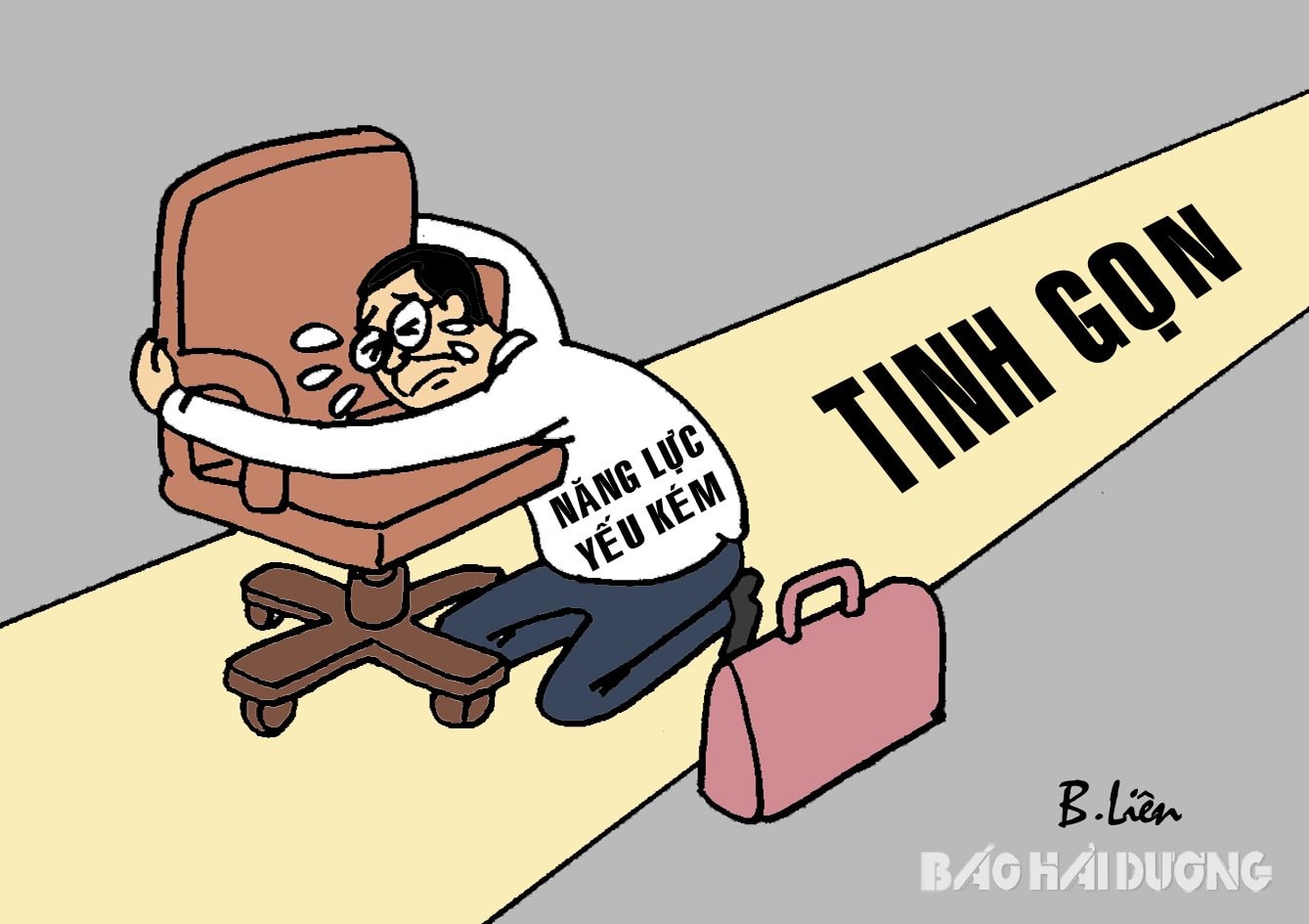With the rapidly-occurring lean revolution, the importance of each person's daily efforts to change becomes even more apparent.

I am over 50 years old this year but have never witnessed such great and rapid changes in the organization of the political system as in the past few months. Let me review some important milestones and events.
On December 1, 2024, the National Conference to disseminate and summarize the implementation of Resolution 18 (term XII) on innovation and organizational restructuring took place. At this very large conference, the Party Central Committee announced an appendix suggesting and guiding the restructuring and streamlining of the apparatus of the political system, which many people still remember clearly with weighty phrases such as "ending operations", "merging", "consolidating", "transferring functions and tasks"... of many agencies in the Central. The viewpoints "The Central does not wait for the province, the province does not wait for the district, the district does not wait for the commune", "If the Central does not have ministries, where will the province get departments" or "running and lining up at the same time"... were put forward, partly describing the urgency and determination of the revolution to streamline the apparatus.
On February 14, 2025, the Politburo issued Conclusion 126 on a number of contents and tasks to continue to arrange and streamline the organization of the political system in 2025. One of the contents of great interest in this conclusion is the study of the orientation of eliminating the district level, building the commune level in accordance with the new organizational model; the orientation of merging a number of provincial-level administrative units to report to the Politburo in the third quarter of 2025. From here, issues related to eliminating the district level and merging provinces have attracted great public attention.
Exactly 2 weeks after Conclusion 126, on February 28, 2025, The Politburo issued Conclusion 127 with even stronger steps and a more urgent timetable. The Politburo assigned the Government Party Committee to report to the Politburo for the policy on studying the orientation of merging some provincial-level units, not organizing at the district level, merging some commune-level units, and implementing the 2-level locality model no later than March 9, 2025.
The common point of the above extremely important documents is that the work and time are clear, many things are handled at the same time, problems are resolved, and later instructions are more urgent than previous instructions. Changes in society are pushed to a new speed like this. to avoid gaps, avoid negative thoughts that affect social management.
Never before has the adaptability of those working in the political system been so highly demanded and demanded as it is today. Adaptability has become an important ability of every civil servant, public employee and worker. When the environment changes rapidly, it is clear that those who are capable and sensitive to new things will survive and develop.
It is inevitable to be concerned, especially in the face of recent and upcoming changes because each reform move affects the work, income, and life of many people. In developed agencies and localities, the team is often better prepared. They train and change every day. In the face of changes in the times, they are confident and calm. That is like a reward for those who have made efforts to change every day.

Of course, any reform has resistance. The first resistance often comes from people who are stagnant, reluctant to change, afraid of change, afraid of losing their rights... They do not accept new things every day, have little desire to improve their work. This leads to difficulty in keeping up with regular work, not to mention the rapid changes of the times.
In recent days, many people from other provinces have come to Hai Duong to rent houses. My friend has pooled money to buy a small house in Hai Phong. This is a close preparation for a new migration for work when small units merge into regional branches.
The changes will not stop there. Hopefully, when touching on big issues such as amending the Constitution, it will pave the way for more extensive reforms that do not stop at the apparatus of the political system and have a long enough future vision to make the country more developed and democratic.
Streamlining the apparatus is an extremely correct policy and, as General Secretary To Lam said, “cannot be delayed any longer”. A streamlined apparatus, low budget expenditure, and high public support create motivation for institutional reform and national development. And, as Prime Minister Pham Minh Chinh often says, “When the Party directs, the Government is unified, the National Assembly agrees, the people support, and the Fatherland expects, then we only discuss action, not retreat.”
YOUTH